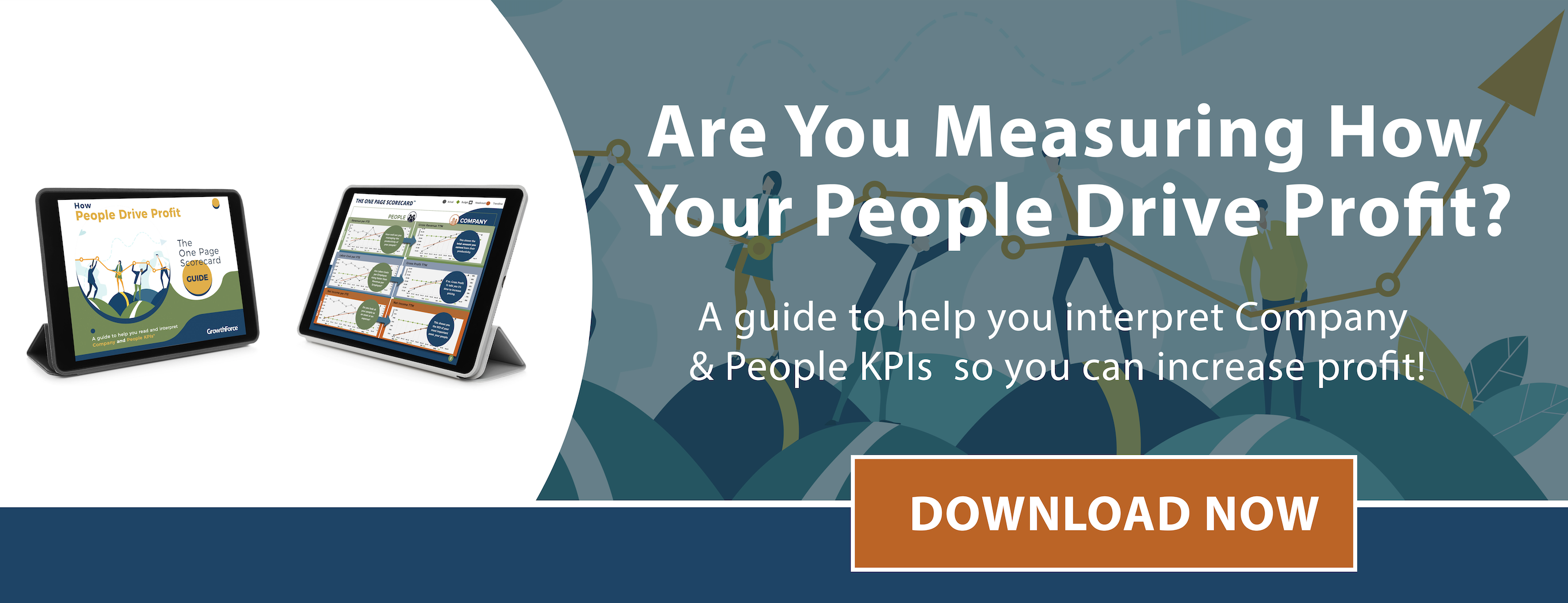5 min read


If running a business was easy, every business would succeed. Fortunately for your market share, but unfortunately for those aspiring to be successful business leaders, running a business isn't easy. It's an enormous challenge that requires limitless energy, passion, creativity, stamina, and flexibility.
|
Key Takeaways
|
As a result, many businesses fail.
According to the Bureau of Labor Statistics [1], only one out of four businesses survive their first 15 years, and a whopping 20% never even get close to reaching a 15-year milestone because they close within their first two years.
Whether cash flow problems, poor leadership decision-making, marketing failures, or lackluster business plans are to blame, one thing is certain: failing businesses lack well-defined operating frameworks.
What Is an Operating Framework?
Defined simply, an operating framework is a strategy that a business uses to unify, motivate, orient, and organize its people around a common vision to achieve predefined goals within a set timeframe.
An operating framework differs from your business plan, and can be defined as mindful, intentional, and well-planned business operations. Essentially, an operating framework should define the actionable strategy that will enable a business leader to successfully execute their business plan.
Why Your Business Needs an Operating Framework
At first glance, "business operations" seems like a straightforward term: it's how your business operates.
When you look closely at the details of what your business operations actually entail, however, you'll find that defining your "business operations" and transforming them into an intelligent, strategic operating framework is more complicated than it seems.
So, let's take a look at the components that comprise a company's business operations:
- Strategic Planning - Business operations all begin with setting short-term and long-term goals, defining what success looks like for your business, and establishing a strategic plan to achieve those goals.
- Operations - This hands-on component of operations includes the technology, tools, processes, workflow, and schedule that your team will use to achieve the goals established in the business strategy.
- Execution - You must ensure that you have the right personnel, teams, and supervisors leading the charge and orienting everyone around well-aligned goals.
- Data/Intelligence - You must continuously gather and analyze your company's key metrics and financial insights to measure the success of each individual project, department, or initiative to determine what's actually moving your business toward its goals and what's holding it back. This information will help you make data-driven decisions to lead your company toward success.
If all of these moving parts are aligned and working together symbiotically in your business, you have established a well-defined operating framework!
Roadblocks and pathways to success become much clearer, and you'll have the team and tools in place to move your business forward.
Why is it so important to have an operating framework?
A Well-Defined Operating Framework Is Essential for Business Survival
Resilience is clearly essential when it comes to weathering fierce challenges and sudden changes that affect business. But what exactly makes a business resilient?
According to Harvard Business Review [2], it's a combination of agility and stability that lends businesses the resilience they need to get through economic downturn even to successfully implement the organizational changes needed to remain operational during a worldwide health crisis.
With one representing flexibility and the other cohesion, agility and stability might seem like opposing forces within a business's operating model, but they're both necessary for the other to function.
While agility provides the dexterity necessary for a company to make swift adjustments in response to a shifting economic environment, stability keeps everyone and everything together, enabling the business to remain upright and operational — no matter how many sudden moves economic conditions force leadership to make.
A well-defined operating framework is the key component to creating a business that can, at once, be agile and stable, because an operating framework unifies personnel in addition to fostering a cohesive vision and well-organized teamwork.
Simultaneously, an operating framework focused on aggressive, short-term goals also provides business leaders with the ability to swiftly pivot the organization's unified vision in response to any crisis.
After establishing a well-defined operating framework, you might be surprised to find that business can do more than simply survive; your business will start to thrive. This is why many growing businesses start by using a framework strategy that fits best with their business, and this helps them follow through.
Three Popular Operating Framework Strategies
There are many types of operating frameworks that have been defined by business leaders. All based on Peter Drucker's Management by Objectives (MBO) [3], three of the most popular operating frameworks include:
- Scaling Up
- Entrepreneurial Operating System (EOS)
- Objectives and Key Results (OKR)
While these framework strategies differ in the way they expand upon Drucker's MBO, they all use the implementation of setting goals, defining roles, and measuring progress to point an organization's people in a common direction to help the business grow.
Which Operating Framework Is Best for Your Business?
1. Scaling Up (AKA The Rockefeller Habits)
Scaling Up was created by Verne Harnish the founder of Entrepreneur's Organization and author of Mastering the Rockefeller Habits and Scaling Up [4]. Of the three we're discussing, this framework is by far the most thorough and detailed.
It pairs a business management methodology with strategic planning tools that guide business toward their goals. This operating framework encourages setting quarterly goals and priorities that will help you work toward your ultimate goal. With Scaling Up, you'll use daily meetings to keep operations on course with respect to strategy, execution, team alignment, and cash management.
Scaling Up is undoubtedly the most thoroughly outlined operating framework, and it's the perfect model for aggressively growing organizations. That being said, some businesses — especially small and medium enterprises — might find its intricacies difficult to implement, even though its principles can be rolled out gradually.
2. Entrepreneurial Operating System (EOS)
Created by Gino Wickman [5], the EOS is based on the same ideas and structure as Scaling Up, but offers a lighter, more digestible framework. Businesses using EOS will enjoy many of the same benefits, but will likely find the weekly (rather than daily) leadership meetings more easily executed.
Like Scaling Up, EOS calls for setting short-term goals (called Rocks) that accumulate and work your organization toward its long-term goals. Unlike Scaling Up, EOS focuses primarily on people and execution with streamlined problem-solving, aligned vision, and data-tracking.
EOS is great for growing businesses.
One of the main reasons why a lot of businesses in the growth phase look towards EOS as an operating framework is because it solves one of their biggest pains: lack of processes. Businesses in this stage often struggle with nailing down formal processes that will ultimately end up scaling their business.
“I think the beauty of EOS is that EOS is a framework for execution. I truly believe that companies that out- execute, trump companies that have great ideas.”
-Micah Brandenburg, Micah Brandenburg Consulting
With easy application and execution, it's perfect for entrepreneurs that might not have as much time or as many resources to dedicate to implementing a system as comprehensive as Scaling Up.
3. Objectives and Key Results (OKR)
Created by Andy Grove [6], Objectives and Key Results is the most versatile of the three operating frameworks. It's based on the highly flexible principles of outlining exactly what you wish to achieve (objectives) and how you measurably plan to achieve it (key results).
Clearly, goals ought to be specific and desired results need to be measurable, ideally with data-based KPIs, in order to track success.
The OKR framework can be applied to short-term goals and long-term visions alike. While it doesn't offer specific guidelines for organizing your people, cash management, strategy, or framework, it will get you to start thinking clearly about defining success and learning how to orient your business operations around goals.
When using an OKR framework, it's good to focus on setting specific, measurable, realistic, and timely (SMART) goals [7].
The OKR is highly flexible, so it works well for working toward any type of goal and can be used in all business types. So, whether you finally want to learn how to ice skate or improve the revenue generated by your independent contracting company, setting up an OKR operating framework is a great way to start.
Using Management Accounting to Implement a Well-Defined Operating Framework
A well-defined operating framework will help you define what success means to your business and orient every piece of your company around a strategy to turn your collective vision of success into a reality.
At the same time, having a solid, streamlined management accounting system makes implementing your operating framework possible.
Management accounting will first help you identify the short and long-term goals that will ultimately help you achieve success in your business. It will enable you to collect relevant financial data and track your progress. Additionally, management accounting can help you identify and remove barriers to your business goals.
Without a robust back office, it's nearly impossible to define, implement, and execute an operating framework for your business.
By establishing sound management accounting processes, you'll ensure your business is oriented around common goals with a clear strategy for achieving them.
As a result, you'll offer stability to your people and your bottom line that will shore up your business against any incoming storms — financial or otherwise.
[1] www.investopedia.com/financial-edge/1010/top-6-reasons-new-businesses-fail.aspx
[2] www.hbr.org/2020/04/to-build-an-agile-team-commit-to-organizational-stability
[3] https://corporatefinanceinstitute.com/resources/knowledge/strategy/management-by-objectives-mbo/
[6] www.whatmatters.com/faqs/okr-meaning-definition-example/
[7] https://corporatefinanceinstitute.com/resources/knowledge/other/smart-goal/

.png?width=2000&height=440&name=Transitional%20GF%20Logo%20-%20Transparent%20(1).png)

